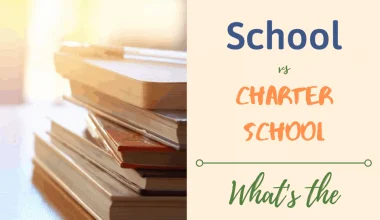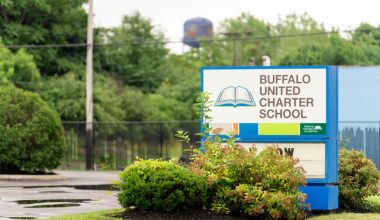Do private schools follow the national curriculum? This question is on the minds of many parents when considering their child’s education.
You may need to know this if you’re planning to take your child to a private school. Hence, we’ll explore whether private schools follow the national curriculum.
Understanding how private schools approach the national curriculum can help parents make informed decisions about their child’s education.
Want to know more? Continue reading!

Table of contents
- What Is the National Curriculum?
- Do Private Schools Have to Follow the National Curriculum?
- Can Private Schools Choose to Follow the National Curriculum?
- Are Private Schools Monitored for Curriculum Compliance?
- How Do Private Schools Differ in Curriculum?
- Do Private Schools Offer Extracurricular Activities?
- How Do Parents Decide Between Private and Public Schools?
- Are Private Schools More Expensive?
- Do Private School Graduates Perform Better Academically?
- What Should Parents Consider When Choosing a Private School?
- FAQs
- Conclusion
- References
- Recommendations
What Is the National Curriculum?
The national curriculum is a set of educational standards set by the government to outline what students should learn at each grade level. These standards cover subjects like math, science, English, and social studies. Moving from one grade to the next, students encounter new topics and skills to build upon their knowledge.
This curriculum serves as a roadmap for teachers, ensuring that students receive a comprehensive education. It’s like a guidebook, helping educators plan lessons and track student progress.
Each subject area has specific learning objectives that students are expected to achieve. These objectives act as checkpoints, making sure students are on the right track.
Furthermore, this curriculum helps maintain consistency in education across the country, so students in different states are learning similar concepts. It’s a way to make sure everyone gets a fair shot at a quality education.
See also: Do Grammar Schools Follow the National Curriculum?
Do Private Schools Have to Follow the National Curriculum?
Private schools are not mandated to adhere to the national curriculum. They enjoy flexibility in crafting their own educational programs.
Instead of being bound by government-prescribed standards, private schools have the autonomy to design their curricula, tailoring them to their unique philosophies and student needs. This flexibility allows private schools to innovate and offer specialized programs that may not be available in public schools.
However, it’s essential to note that while private schools can choose not to follow the national curriculum, some opt to align their teachings with these standards voluntarily. This alignment can be a strategic choice, as it may help private school students achieve standardized test scores that are comparable to those in public schools.
Nevertheless, the decision ultimately rests with each private school’s administration, allowing them to decide what approach best serves their students.
See also: Do In-State Schools Students Have to Follow a National Curriculum?
Can Private Schools Choose to Follow the National Curriculum?
Yes, private schools have the option to adopt the national curriculum if they wish. They possess the autonomy to make this decision, providing them with the flexibility to tailor their educational approach. This choice depends on the school’s philosophy, goals, and the needs of their students.
By choosing to follow the national curriculum, private schools can ensure that their students are exposed to a standardized set of educational standards that are widely recognized.
This alignment can be advantageous for students who may transfer between schools or for families seeking a curriculum that aligns with national testing requirements.
However, it’s important to recognize that private schools often differentiate themselves by offering unique programs and teaching methods. Some may choose to integrate elements of the national curriculum while maintaining their distinct educational approach.
See also: Scottish Curriculum: An Overview of the Scottish Education System
Are Private Schools Monitored for Curriculum Compliance?
Private schools are generally not subject to close government monitoring for curriculum compliance. Instead, they operate with a significant degree of independence in designing their educational programs. This autonomy allows them to offer diverse and specialized approaches to learning.
While private schools are not closely monitored for curriculum adherence to national standards, they often seek accreditation from independent organizations. These accreditation processes involve evaluations to ensure that the school maintains certain educational quality standards. However, these evaluations focus on overall school quality rather than strict curriculum alignment.
It’s important to note that accreditation standards can vary between accrediting bodies, so the level of scrutiny may differ from one private school to another. Parents interested in a private school can inquire about its accreditation status to gauge its commitment to quality education.
See also: What is Curriculum Management? 2023 Best Approach
How Do Private Schools Differ in Curriculum?
Private schools exhibit considerable diversity in their curriculum, setting them apart from each other and from public schools. This variance arises from their autonomy in shaping educational content.
Firstly, private schools often emphasize specialized programs. They may focus on specific areas like arts, sciences, or vocational training, allowing students to delve deeply into their chosen fields. This specialization can provide students with unique opportunities for skill development and career preparation.
Furthermore, some private schools integrate religious education into their curriculum. These schools infuse religious teachings and values into subjects, fostering a faith-based educational experience.
Another differentiator is teaching methodology. Private schools may employ innovative approaches such as Montessori, Waldorf, or experiential learning. These methods prioritize hands-on experiences and individualized instruction.
See also: What are Comprehensive And Foundation Schools? How Does It Work?
Do Private Schools Offer Extracurricular Activities?
Private schools often provide a rich array of extracurricular activities for their students. These activities go beyond the core academic curriculum and offer students opportunities for personal growth, skill development, and social interaction.
One key advantage of private schools is their ability to tailor extracurricular programs to meet the diverse interests and talents of their students. These activities can encompass a wide range of options, including sports, arts, clubs, and community service initiatives.
Extracurricular sports programs are commonly offered in private schools, giving students the chance to participate in various sports like basketball, soccer, tennis, and more. This not only promotes physical fitness but also fosters teamwork, discipline, and sportsmanship.
Private schools often excel in the arts, with music, drama, and visual arts programs that encourage students to explore their creative talents. These programs can lead to performances, exhibitions, and competitions, allowing students to showcase their artistic abilities.
Clubs and organizations are another aspect of extracurricular life in private schools. Students can join clubs related to their interests, such as debate, robotics, environmental conservation, or community service. These clubs offer students a platform to connect with like-minded peers and engage in activities they are passionate about.
See also: Do Private Schools Do SATs in 2023
How Do Parents Decide Between Private and Public Schools?
Choosing between private and public schools is a significant decision for parents, and it involves various factors that require careful consideration. To make an informed choice, parents often weigh several key aspects.
- Cost: One of the primary factors in decision-making is the cost associated with private schools. While public education is typically funded by taxes and is tuition-free, private schools often require families to pay tuition fees. Financial considerations can significantly impact a family’s decision, and some may seek scholarships or financial aid options.
- Class Size: Class size is another essential consideration. Public schools may have larger classes due to higher student enrollment, while private schools often boast smaller class sizes, allowing for more individualized attention.
- Teaching Philosophy: Parents often assess the teaching philosophy of a school. Public schools follow state-mandated curricula and teaching methods, while private schools have the flexibility to adopt different approaches, such as Montessori, Waldorf, or religious-based education.
- Curriculum: The curriculum offered is also a crucial factor. Public schools follow a standardized curriculum, while private schools can offer specialized programs or unique subjects not found in public education.
- Values and Culture: Private schools often have distinct values and cultures, which can align with a family’s beliefs and priorities. This factor can be especially important when considering religious or alternative educational institutions.
- Location: The proximity of the school to the family’s home or workplace is another consideration. Parents may opt for a school that is more convenient to access daily.
See also: How Do You Get A Scholarship For Private Schools?
Are Private Schools More Expensive?
Private schools often come with a price tag, making them more expensive compared to public schools. This expense can be a significant factor for families when making educational decisions for their children.
The cost of private schools varies widely depending on several factors. Tuition fees can range from a few thousand dollars to tens of thousands per year. Additionally, some private schools may require additional payments for extracurricular activities, uniforms, books, and transportation.
Financial considerations play a crucial role in the decision-making process for many families. It’s essential to assess whether the investment in a private education aligns with the family’s budget and priorities.
However, it’s worth noting that some private schools offer scholarships and financial aid programs to make education more accessible to a broader range of students. Families should explore these options if they are interested in a private school but have concerns about affordability.
Ultimately, the choice between private and public schools involves weighing the educational benefits, values, and opportunities against the financial commitment. Families must assess their own financial situation and priorities to make an informed decision that best serves their child’s educational needs.
See also: Top 12 Pre-University Summer Schools In The UK
Do Private School Graduates Perform Better Academically?
The academic performance of private school graduates is a topic of interest among parents and educators. While studies suggest that private school graduates often perform well academically, it’s important to consider various factors that contribute to their success.
Several studies indicate that private school students tend to score higher on standardized tests compared to their public school counterparts. These higher scores are often attributed to smaller class sizes, dedicated teachers, and a focus on rigorous academics.
However, it’s essential to recognize that academic outcomes can vary widely among private schools. The quality of education can differ significantly based on factors such as the school’s resources, curriculum, teaching methods, and the level of parental involvement.
Additionally, the motivation and engagement of individual students play a significant role in their academic success. Private schools may attract students and families who prioritize education, which can contribute to higher achievement levels.
See also: Are Grammar Schools Better? The Pros and Cons of Grammar Schools
What Should Parents Consider When Choosing a Private School?
When parents embark on the journey of selecting a private school for their child, several key considerations come into play. These considerations can significantly impact the child’s educational experience and overall growth.
First and foremost, parents should think about the school’s reputation. Researching the school’s history, its academic achievements, and reviews from current and past parents can provide valuable insights. This reputation can offer a glimpse into the overall quality of education provided.
The school’s curriculum and teaching methods are crucial factors. Parents should align these aspects with their child’s learning style and educational needs. Private schools often have the flexibility to offer specialized programs, such as Montessori, IB, or religious-based education, so finding the right fit is essential.
Extracurricular activities and facilities should also be on the radar. These can significantly enrich a child’s education and provide opportunities for personal growth. Assessing the availability of sports, arts, clubs, and other activities can help parents determine if the school offers a well-rounded experience.
Class sizes and teacher-to-student ratios play a role in the individualized attention a child receives. Smaller class sizes can often lead to more personalized instruction and a deeper connection between students and teachers.
Additionally, considering the school’s location, tuition fees, financial aid options, and the school’s values and culture are essential steps in making an informed decision.
See also: What are Free Schools and Its Purpose in UK?
FAQs
No, private schools have the freedom to design their own curriculum.
In most cases, private schools do not receive direct government funding.
Private schools can set their admission criteria and may not admit all applicants.
Private school teachers may or may not be certified, as requirements vary.
Many private schools offer scholarships or financial aid to assist families with tuition costs.
Conclusion
Private schools have the autonomy to choose whether or not they follow the national curriculum. While some private schools may align their curriculum with national standards, others prioritize unique approaches to education.
Parents should carefully consider their child’s individual needs and educational goals when making the decision between private and public education.
References
- Schoolfeesplanning.org – DO PRIVATE SCHOOLS FOLLOW THE NATIONAL CURRICULUM? AND WHAT DO THEY TEACH?
- Thinkstudent.co.uk – Do Private Schools Follow the National Curriculum?




